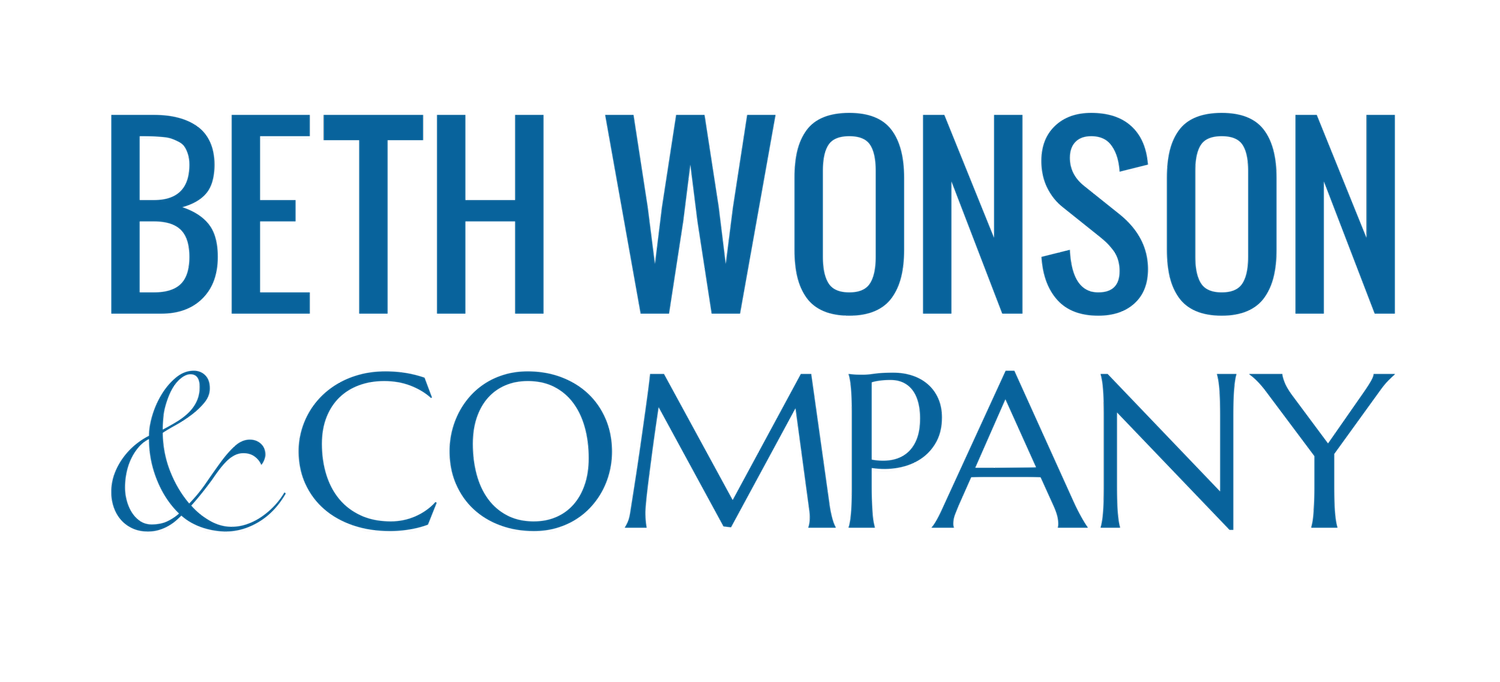Blog & News
Insights Into Leadership + Communication
Leadership coach, communication expert, and author Beth Wonson shares her insights and experience with dozens of industries for changing leadership and workplace culture using her framework for candid communication. Learn from the successes and challenges of Beth and her clients, and get actionable strategies for applying these lessons to your own situations. With a 59% open rate, my subscribers trust Beth to deliver value on leadership, communication, and building healthy culture.
Feedback is a Superpower
Imagine a world without feedback. I know we all have moments when we wish for less feedback. But a world with no feedback would leave me rudderless. It would be like leaving the harbor in a boat, moving forward, but not knowing if the forward movement was getting me closer to or further from my destination.
Managing is Nuanced
A client came to our session with an inquiry about what he’s learning. The lesson he just completed focused on how involving employees in decision making can be empowering and lead to deeper engagement in the work. Had this manager continued with his thought process of empowering his staff to discuss deadlines that were already fixed, he’d be soon dealing with confusion, chaos, and even worse, a lack of trust.
What Reward Do You Desire?
When you are preparing to have a challenging dialogue, it is critical that you are crystal clear on what outcome you desire. Not just for yourself but for the other party as well. When you take the time to identify the reward or desired outcome for each party, you are able to express that at the onset. Expressing this in a clear, clean, and nonemotional way helps to keep the conversation focused and less personal.
The Power of Disclosure
Here’s the thing about building connections: it requires trust. And trust is developed through disclosure. Disclosure is your opportunity to model the behaviors you desire in others.
What Managing-Up Looks Like
Successful managing-up relationships are nuanced and look different in every situation. There isn’t one specific formula or process that works. As I told my client, there is only one way to know if you’ve gone too far and that is based on feedback that you receive, both verbal and nonverbal.
Blindsided by Anonymous Feedback
One client told me, “At the end of every one-to-one check in, I ask my staff what feedback they have for me and everyone always says that they don’t have any. They all say things are great. Yet when the employee surveys came back, a percentage of the team ranked me low in terms of leadership”.
This is not an uncommon issue that I hear from directors and managers, but I have four steps that will help you.
3 Steps to Creating Accountability
When you are ready to accelerate employee engagement and genuine accountability, there are three steps that you can integrate into your management style. Once you integrate and master these steps, you will be cultivating a workplace culture accountability.
7 Questions That Will Change How You Manage People
When you are able to ask great questions, people become motivated, connected and empowered by the sharing of their ideas and knowledge. When your staff comes to you needing help, instead of simply providing answers, I have 7 questions you can ask which will foster critical thinking and proactive problem solving.
Answering Unanswerable Questions
Why unanswerable questions are so challenging for managers of people and businesses, and the solution for answering those questions.
Holding Space is a Critical Manager Skill
Holding space is one of the most important skills for managers who want to develop the skillfulness of their staff. It is nuanced, requires practice, and also requires a significant level of self-awareness.
6 Strategies for Creating A Culture of Communication
Giving employees an opportunity to have their voice heard, especially when the dialogue is challenging, is critically important for retention. When employees feel heard, building a culture of trust is easier.
When employees feel they have no voice, they are more likely to say nothing, then resign or miss work. Both of these consequences have significant costs in terms of dollars, time and success.
5 Qualities of a Successful Generalist
There’s a popular theory that success requires individuals to become experts in a specific niche. The truth is that with the complexity of the challenges facing organizations and the advancement of artificial intelligence and automation, the way to stay relevant and valuable is to be a curious learner and develop knowledge in a range of topics.
7 Ways Managers Can Activate Problem Solving in Others
To successfully manage people, you must actually know some really great questions. When you are able to ask great questions, people become motivated and empowered by sharing their ideas and knowledge. Here are 7 ways you can activate problem solving in others right now.
How To Be An Asset (not an a*s)
No one ever taught me how to show up the first time I was invited to the planning table, so I'm here to help you.
